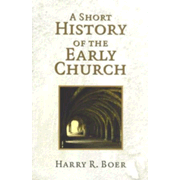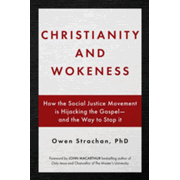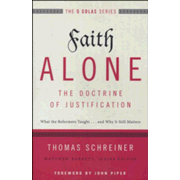 OUR BIBLE study for this week of Christ the King Sunday
comes from the Gospel According to Saint Luke. Herein we read of a revealing
conversation that occurred between our Lord and the two thieves who had been crucified
alongside him. The conversation revealed the character of those who attended
the spectacle of our King's enthronement…
OUR BIBLE study for this week of Christ the King Sunday
comes from the Gospel According to Saint Luke. Herein we read of a revealing
conversation that occurred between our Lord and the two thieves who had been crucified
alongside him. The conversation revealed the character of those who attended
the spectacle of our King's enthronement…
And when they came to
the place which is called The Skull, there they crucified him, and the
criminals, one on the right and one on the left. And Jesus said, "Father,
forgive them; for they know not what they do." And they cast lots to
divide his garments.
And the people stood by, watching; but the
rulers scoffed at him, saying, "He saved others; let him save himself, if
he is the Christ of God, his Chosen One!"
The soldiers also mocked him, coming up and offering him vinegar, and saying,
"If you are the King of the Jews, save yourself!" There was also an inscription over him,
"This is the King of the Jews."
One of the criminals who were hanged railed at
him, saying, "Are you not the Christ? Save yourself and us!" But the
other rebuked him, saying, "Do you not fear God, since you are under the
same sentence of condemnation? And we indeed justly; for we are receiving the
due reward of our deeds; but this man has done nothing wrong."
And he said, "Jesus, remember me when you
come into your kingdom." And he said to him, "Truly, I say to you,
today you will be with me in Paradise."
(Luke 23:33-43)
 |
A Short History of the Early Church By Harry Boer / Wm. B. Eerdmans Publishing Co. For readers who want a brief yet reliable introduction to the history of the early church as well as for those who are looking for a quick review of the period, this volume furnishes a concise overview of the key events, figures, controversies, and councils essential for a proper understanding of the first seven centuries of the Christian church. Harry R. Boer provides background on the world into which the church was born, surveys the life of the church from the minstry of Jesus until 600 A.D., examines the effects of persecution and heresy on the church, explains the role of several key church leaders, and focuses specifically on the church's ongoing struggle to formulate proper doctrines of the Trinity and of Christ. Each chapter is clearly outlined and concludes with several discussions and questions that enhance the book's use as a study guide for church groups or as a text in courses on early church history. |
A Crowd, Thieves and the
Servant King
In this gospel Luke gives us the correct meaning of Golgotha
(in the Aramaic) and also Calvary (in Latin). The place is described as
"the Skull". It was correctly named. Golgotha was a garbage pit, a barren place of
death in which Jesus was “lifted up” in keeping with scriptural prophecy.
He was lifted up high, but not to simply be an earthly king on an earthly
throne as his followers thought. Instead, by the divine workings of God, Jesus placed himself upon the cross for the salvation of those who would believe in
his redemptive work.
Luke's account
of the crucifixion reads differently from the other gospels. Mark and Matthew focused
on mankind's hatred of Jesus. John presented Jesus as the divine personality of God, in whom people can find calm and certainty. Luke shows us, however, that Jesus was, and still is... certainly God’s suffering Servant. Luke’s telling showed his Church
communities the regal grace of Christ Jesus as he poured out his blood for
sinners.
As we study this lesson given to us by the Lukan churches therefore, we read that even while Jesus been nailed to the cross.., he gracefully prayed for those who crucified him. He also prayed for those disciples who believed in him. We must take due note here that there were also a goodly number of persons present who stood by and just watched, as if the crucifixions were events of both justice and entertainment.
I find that in Luke’s descriptive language these bystanders were spoken of with certain derision… as those harshly “seeing scoffing” (in the Greek, read as "theron exemukterizon"). These scoffers, standing back... were those who were likely instigated by religious fervor and political rush of the Sanhedrin. They remain as a particular and disdained target in Luke’s discourse. Through them, Luke thus heaped this condemnation indirectly upon those in synagogue communities who were scoffing as Christians received Roman persecutions.
As we study this lesson given to us by the Lukan churches therefore, we read that even while Jesus been nailed to the cross.., he gracefully prayed for those who crucified him. He also prayed for those disciples who believed in him. We must take due note here that there were also a goodly number of persons present who stood by and just watched, as if the crucifixions were events of both justice and entertainment.
I find that in Luke’s descriptive language these bystanders were spoken of with certain derision… as those harshly “seeing scoffing” (in the Greek, read as "theron exemukterizon"). These scoffers, standing back... were those who were likely instigated by religious fervor and political rush of the Sanhedrin. They remain as a particular and disdained target in Luke’s discourse. Through them, Luke thus heaped this condemnation indirectly upon those in synagogue communities who were scoffing as Christians received Roman persecutions.
 |
Christianity and Wokeness By Owen Strachan |
A King’s Work!
In the witness of Luke, therefore, we read of the two men
also crucified beside Jesus on that horrid, yet blessed day. One thief taunted, and the other
reproved the first man for his rants against Jesus. Confessing his debt, the second
thief owned that they both deserved the pronounced legal sentence, but stated
that he believed that the innocent Jesus was being wrongfully crucified. We duly
note that this penitent thief thus made profound true statement of Jesus’ absolute innocence,
even before any great signs of divinity were displayed to him. The subsequent events afterward startled scoffers, the unrepentant, and even the
centurion.
Was this Luke's warning to unbelievers?
Was this Luke's warning to unbelievers?
Indeed! The repentant man certainly
was evidenced by Luke as believing in life to come. In faith received, he was
granted the ability to recognize the royal and divine nature of Jesus. The
penitent thief thus humbly observed humility as he asked, “Lord, remember me in your
kingdom…; referring to Jesus indeed as Christ the King. Luke remembered the man in
a way that caused the Church to cite the occasion some five decades
after the event. His testimony echoes yet.
Upon the throne of
the cross, we need to remember the great act that Jesus accomplished was to
obtain from the Father, the forgiveness of human sin. Reading that Jesus was crucified
between two thieves; both sinners, is surely significant. One scoffed and one
repented. By this textual illustration the author of Luke shows a stark difference.
We note specifically Jesus’ reply to the penitent thief. This conversation is
recorded only in Luke! The scribal pen thus offered to Luke's congregations a witness
to the undeserved grace provided by Jesus Christ. Faith was given and faith expression was rewarded.
Consequently, the
pronouncement of Jesus, the Christ and King, in answer to faith spoken... was a
demonstration of powerful loved poured out.., grace that would seem little
expected within that horrid context. The revelation to us today is that the text
completely negates the folly of doing works to earn our way to heaven.
 |
Faith Alone, The Doctrine of Justification: What the Reformers Taught...and Why It Still Matters By Thomas Schreiner |
Unbelievers often note with
amazement that a thief forgiven obtained a seat at the holy table in the divine kingdom
at the discretion of divine love. Though a scoffing crowd
gathered and one malefactor denied and taunted, one dying man truly spoke words
of faith. Thus Luke showed his readers that the thief amid a hostile world was
snatched by God as a branding iron from the burning fires of hell. His profession stood
before Luke’s communities, cauterizing them as a monument of heavenly mercy.
We see that Jesus had
been enlisted in great struggle and agony over against the satanic Adversary who
would condemn. Christ the King consequently garnered pity from the poor penitent… one of many persons for whom our Lord had come. By
this singular act of undeserved grace we ourselves are to understand that Jesus Christ
died to open the kingdom of heaven to all who are penitent in faith. We are,
thanks be to God, given the opportunity in the here and now to become graceful
recipients.
Believers have this instance in scripture that teaches what Luke would have
us know. Even in the bold face of persecution from those who would scoff and
persecute us, we are not to despair of divine grace! Let no one abandon hope. Here we
read that a crowd scoffed, one unbelieving thief scorned, yet through a quiet and
almost prayerful conversation… an almost imperceptible confession of faith
occurred. A believer was given unto the keeping of the heavenly realm. A
miracle was shown to him, though he was a sinner. He was saved, blessed, and
received into Paradise… alongside God!

No comments:
Post a Comment